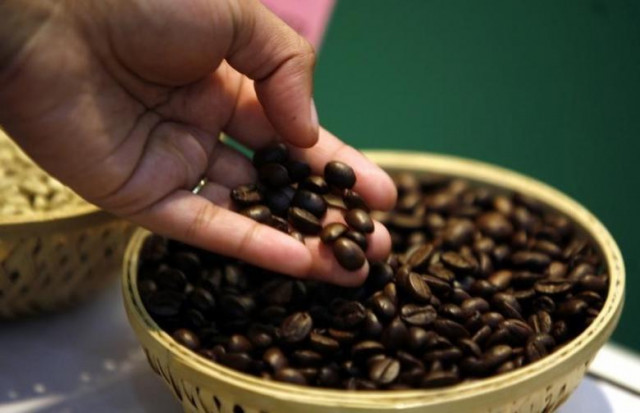Students nearly died after taking caffeine enough for 300 cups of coffee
Students at Northumbria University were part of a botched science experiment

The pair was given 100 times the correct dosage. PHOTO: REUTERS
Alex Rossetto and Luke Parkin, who volunteered as subjects for a study aimed at measuring effects of caffeine on exercise, were rushed to the hospital for dialysis after consuming 100 times the correct dosage.
While Parkin lost 10kg during treatment in intensive care unit for two days, Rossetto remained hospitalised for six days where he lost 12kgs and experienced short-term memory loss.
The Newcastle Crown Court was told that the researchers misplaced a decimal point while calculating amount on their mobile phones, an error that “could easily have been fatal”, according to Prosecutor Adam Farrer.
Promoting science: Scientists share knowledge with students, researchers
Farrer informed the court that the pair should have been given 0.3g of caffeine in the orange juice mix instead of 30g – considering an average cup of coffee has 0.1g of caffeine in it. He said that consumption of just 18g of caffeine has previously resulted in a death, adding that the students were left in a “life-threatening condition”.
He further added that supervision was vital since the university had switched from using caffeine tablets to powder. “The staff were not experienced or competent enough and they had never done it on their own before," Farrer told the court. "The university took no steps to make sure the staff knew how to do it."
"Both were sportsmen and fit young men. Luckily for them and for everyone they were in the sort of shape that was able to deal with this large amount of caffeine," Judge Edward Bindloss said.
"The test was perfectly proper, the error was in the calculation of the amount of caffeine," the judge said. "It should have been a high priority, a risk assessment should have been carried out and appropriately put into place and appropriate training to reduce the foreseeable risk.”
US scientists create metallic hydrogen for first time
The pair has since recovered from the ordeal and are pursuing their respective civil cases. The university was fined £400,000 for the March 2015 incident.
Vice chancellor Peter Smith, present at the court expressed regret on behalf of the university. "They are deeply sorry for the breach in this case," he said. "The university community is a close one and they wish to emphasise that they take the welfare of their students and staff seriously."
Meanwhile the university released a statement apologising for the episode. “The university is genuinely sorry for what happened in this case. This was an isolated incident. We reacted promptly to what took place.”
A spokersperson for the Health and Safety Executive, prosecutors in this case, said it was 'happy' with the fine, and hoped that it will “send a message” to similar organisation conducting human experiments.
This article originally appeared in The Telegraph.



















COMMENTS
Comments are moderated and generally will be posted if they are on-topic and not abusive.
For more information, please see our Comments FAQ